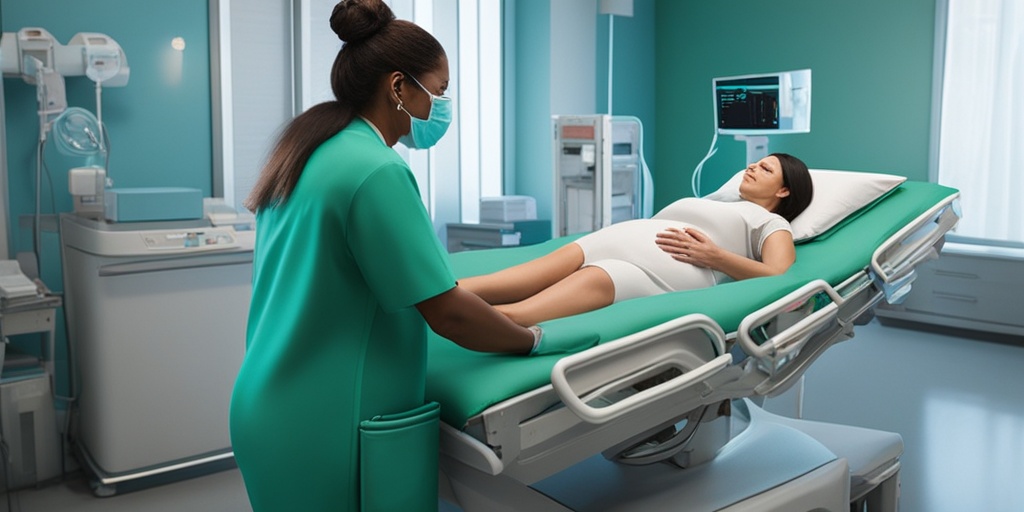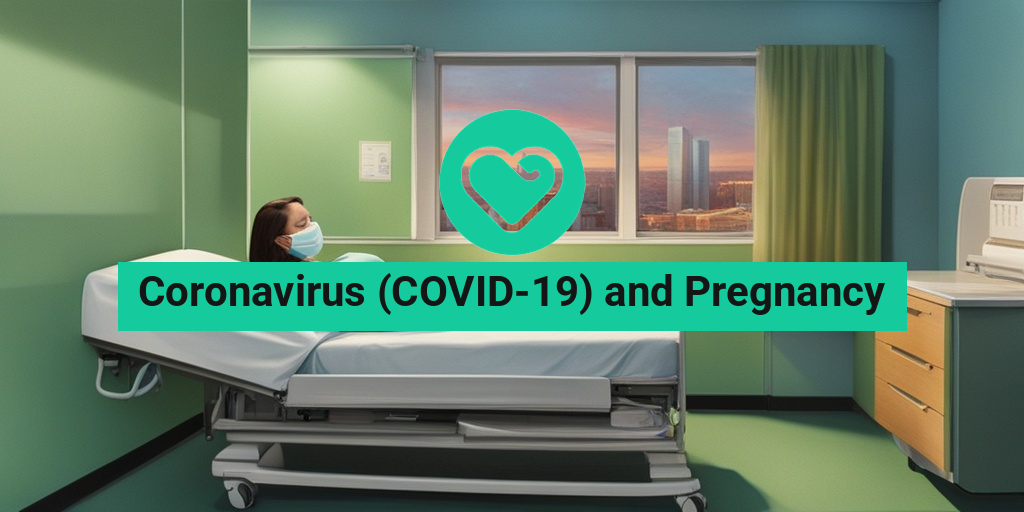What Is COVID-19 and How Does It Affect Pregnancy?
As the world continues to grapple with the COVID-19 pandemic, pregnant women are naturally concerned about the risks and implications of the virus on their health and that of their unborn baby. In this article, we’ll delve into the world of COVID-19 and pregnancy, exploring what COVID-19 is, how it affects pregnant women, and what precautions expectant mothers can take to stay safe.
What is COVID-19?
COVID-19, short for Coronavirus disease 2019, is a respiratory illness caused by the SARS-CoV-2 virus. It was first identified in Wuhan, China in December 2019 and has since spread globally, infecting millions of people. COVID-19 can cause a range of symptoms, from mild to severe, including fever, cough, and shortness of breath.
How Does COVID-19 Affect Pregnancy?
Research suggests that pregnant women are at a higher risk of severe illness from COVID-19 compared to non-pregnant women. This is because pregnancy can weaken the immune system, making it harder for the body to fight off infections. Additionally, pregnant women are more likely to experience complications, such as pneumonia, which can be life-threatening.
It’s essential for pregnant women to take precautions to minimize their risk of infection. This includes practicing good hygiene, such as washing hands frequently, avoiding close contact with people who are sick, and staying at least 6 feet away from others.
COVID-19 Symptoms in Pregnant Women
COVID-19 symptoms in pregnant women are similar to those experienced by non-pregnant women. However, pregnant women may experience more severe symptoms, which can be concerning for both the mother and the baby. Common symptoms of COVID-19 in pregnant women include:
- Fever
- Cough
- Shortness of breath or difficulty breathing
- Fatigue
- Headache
- Sore throat
- Runny nose or stuffy nose
- Body aches or muscle pains
- Diarrhea
- Nausea or vomiting
If you’re pregnant and experiencing any of these symptoms, it’s crucial to contact your healthcare provider immediately. They will assess your symptoms and provide guidance on the next steps to take.
Remember, staying informed and taking proactive steps to protect yourself and your baby is key. For evidence-based health answers and personalized guidance, consider consulting with a healthcare professional or utilizing resources like Yesil Health AI (yesilhealth.com). Stay safe, and stay healthy! 🙏

Risks of COVID-19 During Pregnancy
As the world continues to grapple with the COVID-19 pandemic, pregnant women are naturally concerned about the risks associated with the virus. While the risks are generally low, it’s essential to understand the potential complications that can arise when COVID-19 and pregnancy intersect.
Increased Risk of Preterm Labor and Delivery
Studies have shown that pregnant women who contract COVID-19 are at a higher risk of preterm labor and delivery. This is particularly concerning, as preterm birth can lead to a range of health problems for the baby, including respiratory distress, developmental delays, and increased risk of infection.
Higher Risk of Pregnancy-Related Complications
COVID-19 can exacerbate existing pregnancy-related complications, such as gestational diabetes and hypertension. In severe cases, COVID-19 can lead to more serious complications, including preeclampsia and placental abruption.
Increased Risk of Maternal Mortality
While rare, COVID-19 can increase the risk of maternal mortality, particularly in women with underlying health conditions. It’s essential for pregnant women to take precautions to minimize their risk of infection and to seek medical attention immediately if they experience any symptoms.
Vertical Transmission
There is a small risk of vertical transmission, where the virus is passed from the mother to the baby during pregnancy or delivery. However, this risk is thought to be low, and the vast majority of babies born to mothers with COVID-19 are not infected.
How COVID-19 Affects the Fetus
While the risks associated with COVID-19 during pregnancy are concerning, the good news is that the virus does not appear to have a significant impact on fetal development. However, there are some potential effects to be aware of:
Fetal Growth Restriction
In some cases, COVID-19 may lead to fetal growth restriction, where the baby does not grow at a normal rate. This can increase the risk of health problems for the baby after birth.
Increased Risk of Congenital Anomalies
Some studies suggest that COVID-19 may increase the risk of congenital anomalies, such as heart defects and neural tube defects. However, more research is needed to fully understand the relationship between COVID-19 and congenital anomalies.
Neonatal Infection
In rare cases, babies may be infected with COVID-19 during delivery or shortly after birth. This can lead to severe illness and even death in some cases.
It’s essential for pregnant women to take precautions to minimize their risk of COVID-19 infection, including:
- Practicing good hygiene, such as washing hands frequently and avoiding close contact with people who are sick
- Wearing a mask in public and in crowded areas
- Avoiding non-essential travel and gatherings
- Staying up-to-date on vaccinations and prenatal care
By understanding the risks associated with COVID-19 during pregnancy and taking steps to minimize the risk of infection, pregnant women can help ensure a healthy pregnancy and a healthy baby. 💕

COVID-19 Diagnosis During Pregnancy
Receiving a COVID-19 diagnosis during pregnancy can be a stressful and overwhelming experience. As an expectant mother, it’s natural to have concerns about the health and well-being of both yourself and your unborn baby. In this section, we’ll explore the diagnosis process, symptoms to look out for, and what to expect if you test positive for COVID-19 during pregnancy.
Symptoms of COVID-19 in Pregnant Women
COVID-19 symptoms in pregnant women are similar to those experienced by the general population. However, some symptoms may be more severe or prolonged due to the changes in the immune system during pregnancy. Common symptoms of COVID-19 include:
- Fever
- Cough
- Shortness of breath or difficulty breathing
- Fatigue
- Headache
- Sore throat
- Runny nose or stuffy nose
- Body aches or muscle pains
- Diarrhea
- Nausea or vomiting
It’s essential to remember that some pregnant women may not exhibit any symptoms at all, or they may be mild. If you’re experiencing any of these symptoms or have been exposed to someone with COVID-19, it’s crucial to contact your healthcare provider immediately.
Diagnosis and Testing
If you’re suspected of having COVID-19, your healthcare provider will perform a series of tests to confirm the diagnosis. These may include:
- Nasopharyngeal swab: A swab is inserted into your nose and throat to collect a sample.
- Oropharyngeal swab: A swab is inserted into the back of your throat to collect a sample.
- Antigen test: A rapid test that detects the presence of COVID-19 antigens in your sample.
- PCR (Polymerase Chain Reaction) test: A molecular test that detects the genetic material of the COVID-19 virus.
These tests are usually performed in a healthcare setting, and the results are typically available within a few hours to a few days.
Treatment and Care for Pregnant Women with COVID-19
If you’ve been diagnosed with COVID-19 during pregnancy, it’s essential to work closely with your healthcare provider to develop a treatment plan that’s tailored to your individual needs. While there is no specific treatment for COVID-19, your healthcare provider may recommend the following:
Supportive Care
Supportive care focuses on relieving symptoms and managing the infection. This may include:
- Rest and hydration: Staying hydrated and getting plenty of rest can help your body recover from the infection.
- Fever reduction: Your healthcare provider may recommend medications to reduce fever, such as acetaminophen.
- Oxygen therapy: If you’re experiencing shortness of breath or difficulty breathing, oxygen therapy may be necessary.
- Nutrition: A healthy diet rich in fruits, vegetables, and whole grains can help support your immune system.
Antiviral Medications
In some cases, your healthcare provider may prescribe antiviral medications to help reduce the severity and duration of COVID-19 symptoms. These medications may include:
- Remdesivir: An antiviral medication that’s been shown to reduce the severity of COVID-19 symptoms in some patients.
- Lopinavir/ritonavir: A combination of antiviral medications that may be used to treat COVID-19 in pregnant women.
It’s essential to note that these medications should only be used under the guidance of a healthcare provider and may have potential risks and side effects.
Remember, if you’re pregnant and have been diagnosed with COVID-19, it’s crucial to prioritize your health and the health of your unborn baby. Stay in close contact with your healthcare provider, and follow their guidance and recommendations to ensure the best possible outcome. 🤰♀️

Preventing COVID-19 During Pregnancy
As an expectant mother, it’s natural to have concerns about the Coronavirus (COVID-19) and pregnancy. With the ongoing pandemic, it’s essential to take extra precautions to minimize the risk of infection and ensure a healthy pregnancy. In this section, we’ll discuss the ways to prevent COVID-19 during pregnancy.
Practice Good Hygiene
One of the most effective ways to prevent COVID-19 is by practicing good hygiene. Wash your hands frequently with soap and water for at least 20 seconds, especially after:
- Using the bathroom
- Before eating
- After blowing your nose, coughing or sneezing
- After touching animals, their food or waste
- After touching garbage
Use an alcohol-based hand sanitizer if soap and water are not available. Avoid touching your face, especially your mouth, nose, and eyes, as this can transfer the virus from your hands to your face.
Social Distancing
Social distancing is crucial in preventing the spread of COVID-19. Maintain a distance of at least 6 feet from people who are coughing or sneezing. Avoid:
- Crowded areas and gatherings
- Non-essential travel
- Close contact with people who are sick
Stay connected with friends and family through video calls, messaging apps, and social media to minimize face-to-face interactions.
Wear a Mask
Wearing a mask can help reduce the transmission of COVID-19. The Centers for Disease Control and Prevention (CDC) recommend wearing a mask in public places, especially in areas with high community transmission. Choose a mask that fits snugly over your nose and mouth, and avoid touching the mask while wearing it.
Avoid Close Contact with People Who Are Sick
If someone in your household is sick, try to maintain a distance of at least 6 feet from them. If you need to care for them, wear a mask and wash your hands frequently. Avoid sharing utensils, towels, and personal items to reduce the risk of transmission.
COVID-19 Vaccination and Pregnancy
With the development of COVID-19 vaccines, many expectant mothers are wondering if it’s safe to get vaccinated during pregnancy. In this section, we’ll discuss the latest guidance on COVID-19 vaccination and pregnancy.
Is the COVID-19 Vaccine Safe During Pregnancy?
The CDC and the World Health Organization (WHO) recommend that pregnant women get vaccinated against COVID-19. The vaccines have undergone rigorous testing and have been proven to be safe and effective in preventing severe illness and hospitalization due to COVID-19.
However, it’s essential to consult with your healthcare provider before getting vaccinated. They will assess your individual situation and provide personalized guidance on the risks and benefits of vaccination during pregnancy.
Benefits of COVID-19 Vaccination During Pregnancy
Getting vaccinated against COVID-19 during pregnancy can provide several benefits, including:
- Reducing the risk of severe illness and hospitalization due to COVID-19
- Protecting the baby from COVID-19 infection after birth
- Reducing the risk of preterm birth and low birth weight
- Protecting other family members and caregivers from COVID-19
Remember, it’s always better to be safe than sorry. By taking these precautions and getting vaccinated, you can reduce the risk of COVID-19 infection and ensure a healthy pregnancy. 💊👶

Frequently Asked Questions about Coronavirus (COVID-19) and Pregnancy
Transmission and Risks
Can I pass COVID-19 to my baby during pregnancy or delivery? 🤰
According to the Centers for Disease Control and Prevention (CDC), the risk of transmitting COVID-19 to the baby during pregnancy or delivery is low. However, it’s essential to take precautions to minimize the risk of transmission.
Symptoms and Diagnosis
What are the symptoms of COVID-19 in pregnant women? 🤒
Pregnant women may experience mild to severe symptoms, including fever, cough, shortness of breath, and fatigue. If you’re experiencing any of these symptoms, contact your healthcare provider immediately.
How is COVID-19 diagnosed in pregnant women? 🧬
Diagnosis is typically made through a combination of medical history, physical examination, and laboratory tests, such as PCR (polymerase chain reaction) or antigen tests.
Treatment and Prevention
What is the treatment for COVID-19 in pregnant women? 💊
Treatment for COVID-19 in pregnant women is primarily focused on managing symptoms and supporting the body’s immune system. Your healthcare provider may recommend antiviral medications, oxygen therapy, or other treatments as needed.
How can I prevent COVID-19 during pregnancy? 🚫
To minimize the risk of COVID-19, practice good hygiene, wear a mask, maintain social distancing, and get vaccinated if recommended by your healthcare provider.
Vaccination and Pregnancy
Is the COVID-19 vaccine safe for pregnant women? 💉
The CDC recommends that pregnant women get vaccinated against COVID-19, as the benefits of vaccination outweigh the risks. However, it’s essential to discuss any concerns with your healthcare provider.
Breastfeeding and COVID-19
Can I breastfeed if I have COVID-19? 🤱
Yes, breastfeeding is safe even if you have COVID-19. However, it’s crucial to take precautions to minimize the risk of transmission to your baby, such as wearing a mask and practicing good hygiene.
Additional Resources
Where can I find more information about COVID-19 and pregnancy? 📚
For reliable and up-to-date information, visit the Centers for Disease Control and Prevention (CDC) website or consult with your healthcare provider.




